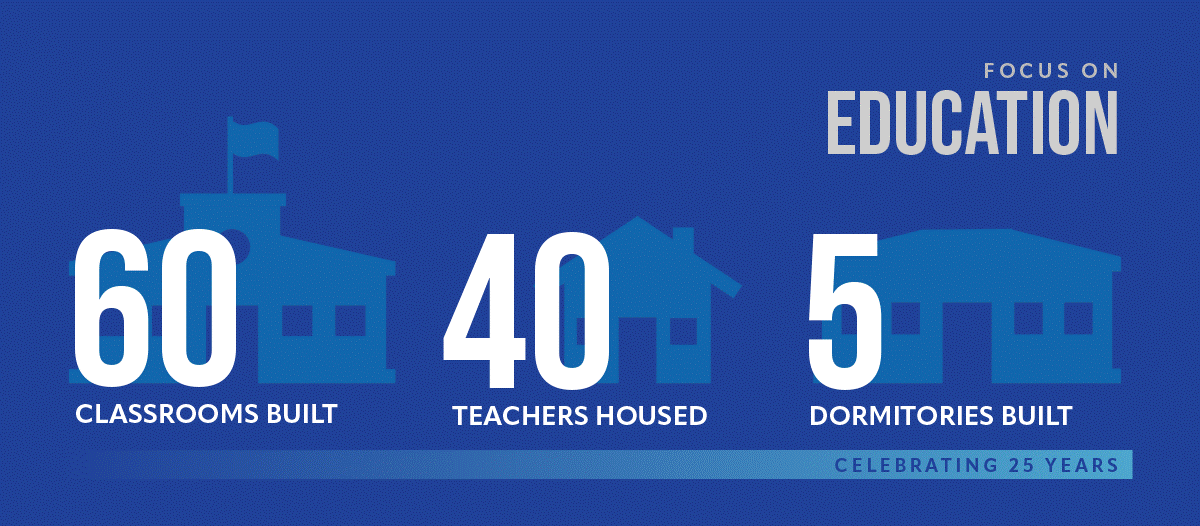PERSPECTIVES - Tanzanian Student Health
and the Progress We’ve Helped Make
The United Nations’ 2030 Agenda for Sustainable Development emphasizes 17 goals meant to promote prosperity, end poverty, address social needs, and more. They’re designed to embody the spirit of “leaving no one behind,” and they serve as guidelines for philanthropic organizations around the world. They provide a roadmap for accomplishing ethical, thoughtful, impactful projects.
Focus On Tanzanian Communities (“FOTZC”) has selected four specific Sustainable Development Goals—efforts chosen through collaboration with village leaders, local elders, government officials, local educators, and Tanzanian families. They’re the things that mean the most to our friends in Tanzania, and they’re what we devote all our efforts toward.
Good Health and Well Being
Quality Education
Gender Equality
Clean Water and Sanitation
We’re honing in on one of these goals to shed light on specific obstacles in some of our partner communities, and to showcase what you've helped them overcome.
The Importance of Student Health
One of our big projects this year is to expand the Sukenya Health Center with a $75,000 laboratory, so we’re focusing on a special perspective in the vein of good health and well-being—the health of primary and secondary school students in our communities.
Students from Haymu Primary School welcome FOTZC board members during the October 2022 visit. FOTZC has built a borehole, classrooms, teachers' housing, toilets and, soon, a kitchen for the school.
For students across the world, good health is the foundation of a quality education. That’s especially true for students in Tanzania, where health obstacles can be particularly troublesome for students. Illness caused by tainted water often keeps students home from school or too ill to properly focus. Lack of access to clean water in Tanzanian schools has also been “identified as one of the significant barriers preventing adolescent girls from completing their schooling,” according to UNESCO research.
How We’re Making a Difference
When students have access to clean water, they perform better in school. That’s a fact we’ve seen play out firsthand:
Students from Mondorosi Primary School welcome FOTZC board members with a musical performance. FOTZC has built classrooms, a borehole and teachers' housing.
After drilling a freshwater borehole at Ganako Secondary, the school’s national ranking increased dramatically.
Another freshwater borehole at Sukenya Primary School helped reduce student absenteeism by almost two-thirds.
The Sukenya Health Center once reported that waterborne illnesses resulting from tainted water constituted 40% of the cases it saw. But access to fresh water has virtually eradicated waterborne illness in the regions where boreholes have been drilled.
Maasai women in Sukenya used to walk roughly 13 miles to fetch water for their families at the region’s closest water source—an hours-long affair that would often prevent young women and girls from attending school. Now, those students don’t have to choose between clean water and an education.
These are just a few examples. The full story includes thousands of students that our partner communities and you, as a member of our FOTZC family, have helped lead to healthier lives with expanded opportunities.
Good health and good education can be truly empowering—that’s the truth wherever you are in the world. Thank you for your help and for supporting our friends in Tanzania.





